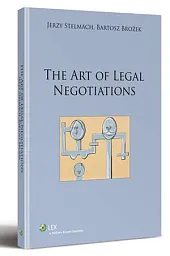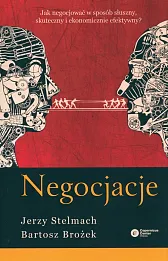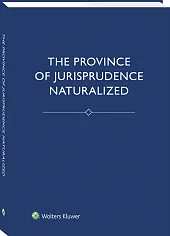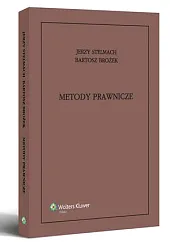Foreword
str. 7
Chapter I. The Phenomenon of Negotiations
str. 9
1. The negotiable law
str. 12
The open-endedness of legal interpretation
str. 14
What is a legal rule?
str. 16
Negotiation triggers
str. 17
Result
str. 18
The claim to universality
str. 20
Statistical justification
str. 21
2. Three models
...
Foreword
str. 7
Chapter I. The Phenomenon of Negotiations
str. 9
1. The negotiable law
str. 12
The open-endedness of legal interpretation
str. 14
What is a legal rule?
str. 16
Negotiation triggers
str. 17
Result
str. 18
The claim to universality
str. 20
Statistical justification
str. 21
2. Three models for negotiations
str. 23
The argumentation model
str. 24
The topic-rhetorical model
str. 25
The economic model
str. 25
Criteria for distinguishing between negotiation models
str. 27
3. The practice of negotiations
str. 27
Five sources of misunderstanding
str. 28
The existing models of negotiations
str. 32
Chapter II. The Argumentation Model
str. 37
1. Rightness as a negotiation criterion
str. 40
The concept of rightness
str. 40
The discursive approach to rightness
str. 46
2. The top-down strategy
str. 47
Normative deduction
str. 47
The key moments of negotiations
str. 49
3. Controversy over the argumentation model
str. 52
The objections of positivists
str. 52
The objections of laissez-faire advocates
str. 54
The façade objection
str. 57
The undecidability objection
str. 58
4. Ten principles of right negotiations
str. 60
Chapter III. The Topic-Rhetorical Model
str. 68
1. Efficacy as the criterion of negotiations
str. 72
The concept of efficacy
str. 72
Particular audience
str. 74
2. The bottom-up strategy
str. 76
The key moments in negotiations
str. 76
Negotiation eristic
str. 81
3. Controversy over the topic-rhetorical model
str. 87
Underdetermination
str. 88
Amoralism
str. 88
Psychologism
str. 89
Eristic character
str. 90
Eclecticism
str. 90
Relativism
str. 91
4. Ten principles of efficacious negotiating
str. 92
Chapter IV. The Economic Model
str. 100
1. Economic efficiency as the criterion of negotiations
str. 102
The economic way of thinking
str. 103
Law as an economic fact
str. 104
Peculiarities of legal negotiations
str. 109
2. The mixed strategy
str. 112
Between top-down and bottom-up
str. 112
Common and conflicting interests
str. 115
The key moments of negotiations
str. 117
3. Controversy over the economic model
str. 121
Counter-factual character
str. 121
Moral monstrousness
str. 124
Limited applicability
str. 126
The façade objection
str. 127
4. Ten principles of efficient negotiations
str. 128
Bibliography
str. 137
Index of Names
str. 141
Subject Index
str. 147
Rozwiń spis treści Zwiń spis treści













